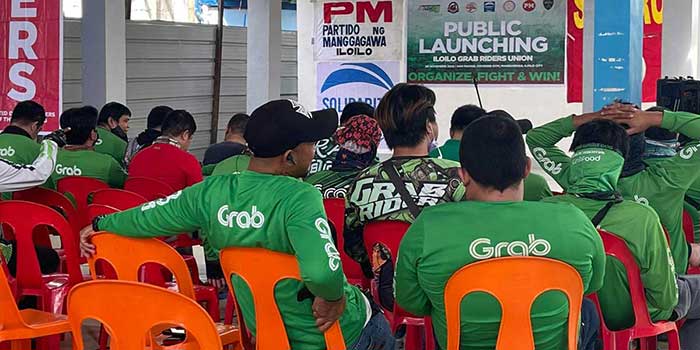
By Francis Allan L. Angelo
The Philippines’ online gig economy has surged since the COVID-19 pandemic, but the rapid growth has drawn attention to the need for stronger social protections for digital workers.
A report from the Philippine Institute for Development Studies (PIDS) highlighted that while freelance earnings in the country increased by an impressive 208% between 2019 and 2020, online workers face significant challenges related to employment security and social benefits.
Queen Cel Oren, a PIDS research specialist, explained during a recent forum that despite the sector’s economic potential, freelancers and gig workers remain vulnerable.
“Online workers are also susceptible to risk and exploitation, such as oversupply of online workers, employment insecurity, discrimination, social isolation, overwork, psychological harm, free labor, and the race to the bottom wage rates,” Oren said.
Delivery riders, who are part of this expanding sector, echoed these concerns.
Mark Villanueva, a delivery rider in Iloilo City, shared the difficulties of being a gig worker.
“The flexibility is good, but we don’t have benefits like SSS or health insurance. If we get sick or hurt on the job, we’re on our own,” Villanueva said.
Oren pointed out that although flexible work arrangements provide opportunities for autonomy, they lack the standardized compensation and social protections seen in traditional employment. “The challenge for the government is how to ensure that online work adheres to decent work principles or ideals,” she added.
The report emphasized that online workers—including freelancers, independent contractors, and part-time workers—often operate outside the scope of existing social insurance programs like PAG-IBIG, SSS, and PhilHealth. To bridge this gap, Oren proposed reclassifying digital workers under broader membership categories to ensure their inclusion.
Policy Efforts and Legislative Gaps
While legislative frameworks such as the Freelance Workers Protection Act and the Magna Carta for Workers in the Informal Economy have been introduced, PIDS’ findings indicate that these measures fall short in effectively addressing the needs of gig workers. The report called for policy revisions to better align social protection and taxation systems with the realities of online work.
“There is a need for updated laws that reflect the changing nature of employment and that provide safety nets for the millions of Filipinos working online,” Oren stressed.
Gender Disparities and Digital Access
The online workforce is composed of diverse demographics, but women’s participation is notably high at 62%. However, women face unique challenges, including balancing paid online work with unpaid household duties.
“Remote work does not necessarily decrease the hours spent on unpaid domestic tasks,” Oren noted, citing studies showing that women continue to bear a disproportionate share of housework even while working remotely.
Delivery riders like Liza Morales, who also handles household chores after work, highlighted the struggle.
“After a full day delivering, I come home to housework. It’s exhausting, and there’s no extra support for us,” Morales said.
Moreover, barriers such as poor internet connectivity and limited digital literacy exacerbate inequalities.
The PIDS study highlighted that internet use in the Philippines is still skewed towards entertainment rather than productive, skill-based activities. This gap hinders the potential of workers to fully leverage the digital economy for sustainable income.
Proposals for Comprehensive Support
The PIDS report outlined recommendations for empowering online workers.
These include enhanced internet infrastructure, digital literacy training, and inclusive policies that protect workers from exploitation.
Oren called for “aggressive pursuit of better connectivity and skills training,” emphasizing that these steps would enable marginalized sectors to access economic opportunities and build resilience.
While digital work offers flexibility and new income streams, ensuring fair treatment and adequate protections remains critical.
As Oren concluded, “A one-size-fits-all policy may not be able to capture and address the various issues that online workers face.”
The Philippine government’s focus on this sector is a promising start, but it must accelerate its efforts to provide digital workers with the support and security they need to thrive in the evolving job market.
















